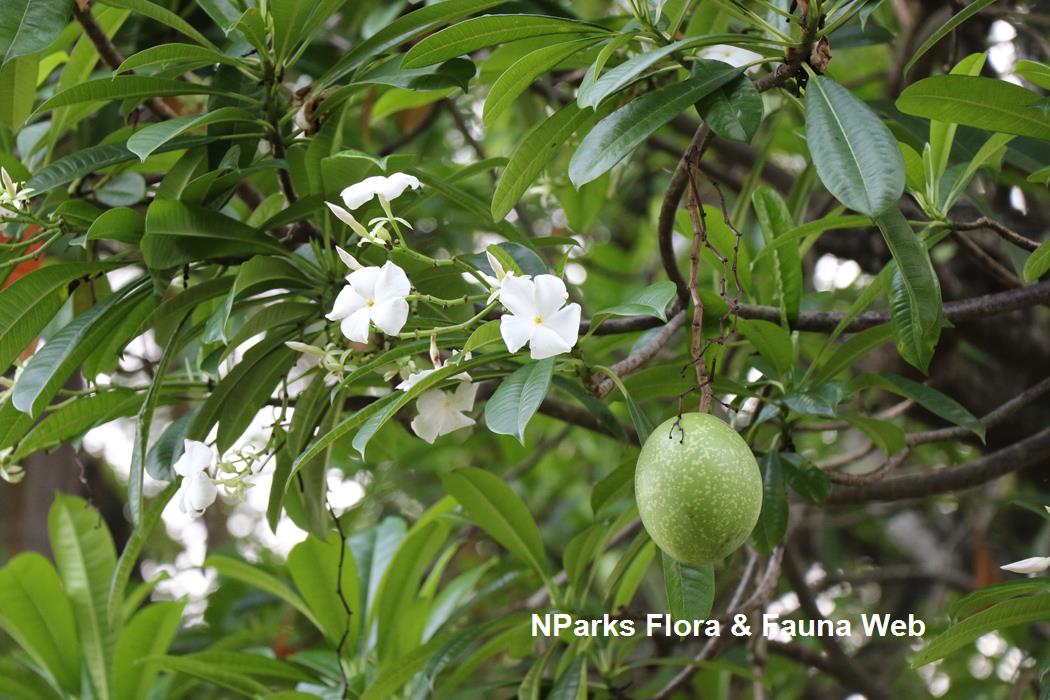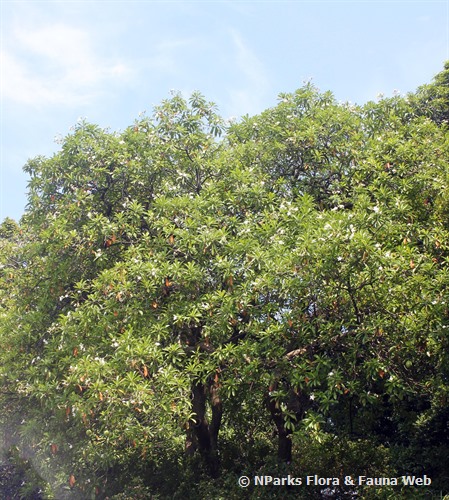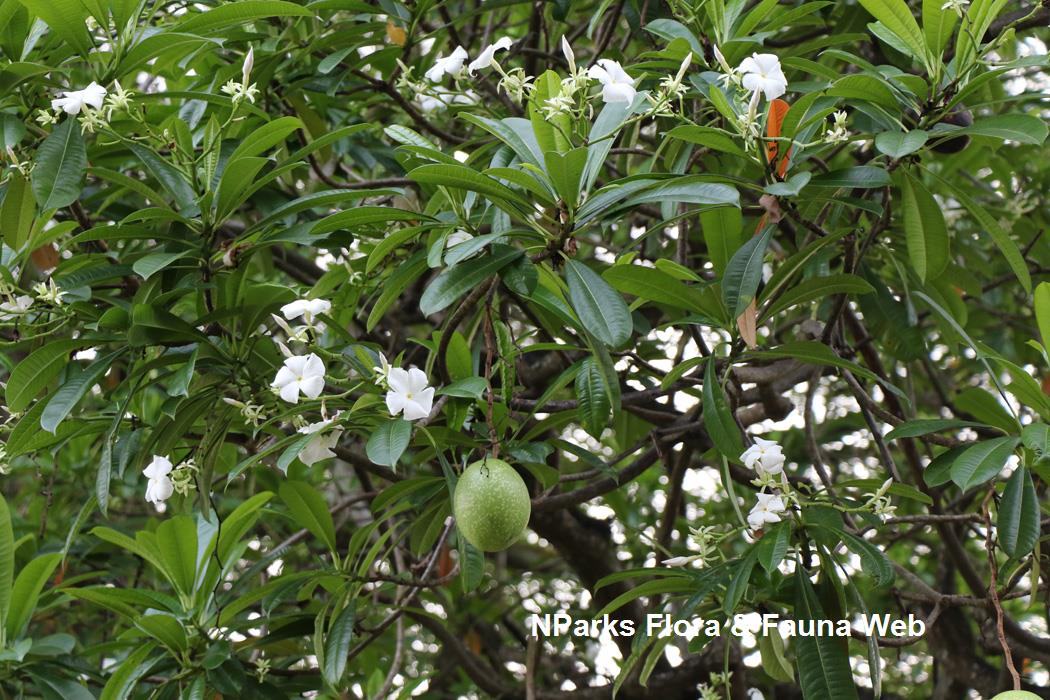
Back
Cerbera odollam Gaertn.
| Family Name: | Apocynaceae |
| Common Name: | Pong Pong, Pong-pong, Sea Pong Pong, Yellow-eyed Cerbera, Buta Buta |
Name
Classifications and Characteristics
| Plant Division | Angiosperms (Flowering Seed Plants) |
|---|---|
| Plant Growth Form | Tree |
| Lifespan (in Singapore) | Perennial |
| Mode of Nutrition | Autotrophic |
Biogeography
| Native Distribution | India to Pacific |
|---|---|
| Native Habitat | Terrestrial (Coastal Forest), Shoreline (Mangrove Forest, Backshore, Sandy Beach) |
| Local Conservation Status | Native to Singapore (Vulnerable (VU)) |
Description and Ethnobotany
| Growth Form | A medium-sized tree, up to 12m tall, with a rounded, bushy crown. |
|---|---|
| Trunk | Often knobbly and buttressed, with rough greyish bark. |
| Foliage | Glossy green, narrowly obovate to elliptic, with a short drip-tip. Dying leaves often turn orange before falling off the tree. |
| Flowers | Prominent white flowers with five petals, typical of Apocynaceae family. Flowers have a yellow "eye" in the centre, and are fragrant. |
| Fruit | Smooth, round, apple-like, containing a single large poisonous seeds, surrounded by thick fibrous husk and a papery outer pulp. Ripen from green to reddish purple to brownish-black, before dropping ofrom the tree. Buoyant husk enables fruits to float on water. The thin pulp is eaten by some birds. |
| Others - Plant Morphology | Used extensively in Singapore in the past as a shade tree, but has been slowly phase out due to aggressive roots, and large fallen fruits. Nowadays, it can be found in parks and gardens as an ornamental shade tree. |
| Associated Fauna | King Crow (Euploea phaenareta castelnaui) |
| Ethnobotanical Uses | Cultural / Religious: The seeds contain a toxin called cerberin, which causes cardiac arrest. They have been used for murder or suicide in India (hence its sinister common name, Indian Suicide Tree), as well as in ordeal trials in Madagascar to 'prove' one's innocence. Others: Seeds have been used as bio-pesticide, insect repellent and rat poison. Bark, leaves and seed oil are used in traditional folk medicine. |
Landscaping Features
| Desirable Plant Features | Ornamental Flowers, Fragrant |
|---|---|
| Landscape Uses | Coastal, Beachfront / Shoreline |
Plant Care and Propagation
| Light Preference | Full Sun |
|---|---|
| Water Preference | Moderate Water |
| Plant Growth Rate | Moderate |
Foliar
| Mature Foliage Colour(s) | Green |
|---|---|
| Leaf Area Index (LAI) for Green Plot Ratio | 4.0 (Tree - Dense Canopy) |
Floral (Angiosperm)
| Flower Colour(s) | White, Yellow / Golden |
|---|
Image Repository
Others
| Master ID | 1507 |
|---|---|
| Species ID | 2800 |
| Flora Disclaimer | The information in this website has been compiled from reliable sources, such as reference works on medicinal plants. It is not a substitute for medical advice or treatment and NParks does not purport to provide any medical advice. Readers should always consult his/her physician before using or consuming a plant for medicinal purposes. |












.jpg)

